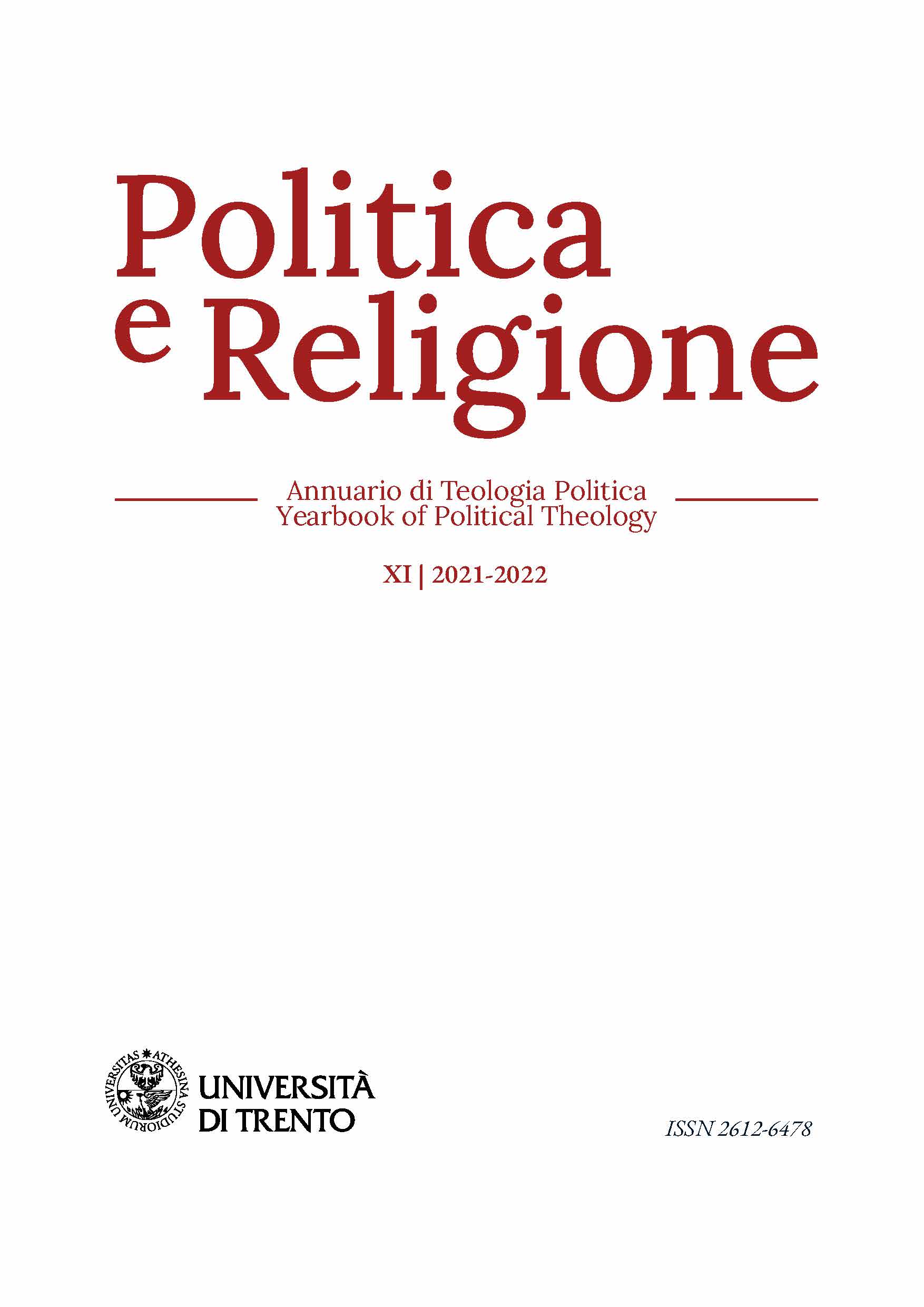<em>Voyage au bout de la théologie politique</em>. Carl Schmitt e la postfazione di <em>Teologia politica II</em>
DOI:
https://doi.org/10.15168/per.vi2021-2022.3152Keywords:
carl schmitt, hans blumenberg, political theology, legitimacy, secularisationAbstract
On the occasion of Hans Blumenberg’s arguments in his book The Legitimacy of the Modern Age, which did not accept the theses set forth in Political Theology, Carl Schmitt, in the afterword to Political Theology II, returns to the question of the legitimacy of the Gesamtordnung by insistently relating it to the entire conceptual constellation of his thought. The first part of the paper will briefly reconstruct what meaning Schmitt gives to the lemma Political Theology and in what sense the secularisation of modern political concepts plays a central role in it. The second part will attempt to understand why the text attracted criticism from Blumenberg, and why according to him secularisation is primarily a linguistic problem indicating a gap in semantic function. Finally, the last part will analytically trace Schmitt’s response to the German philosopher: it will be seen how the jurist not only reiterates how it is not possible to eliminate transcendence from the modern political horizon, but how the political categories themselves are intimately affected by the ineradicable question of enmity, which can only be grasped through fundamental questioning of the origin of theological-political concepts. As much as it takes the form of an “impossible dialogue”, since both remain firm on their positions, the confrontation between Schmitt and Blumenberg is a precious testimony of how necessary it is to confront the problem of transcendence in the production of the political order.
Downloads
Published
Issue
Section
License
Copyright (c) 2024 Alvise Capria

This work is licensed under a Creative Commons Attribution-ShareAlike 4.0 International License.


